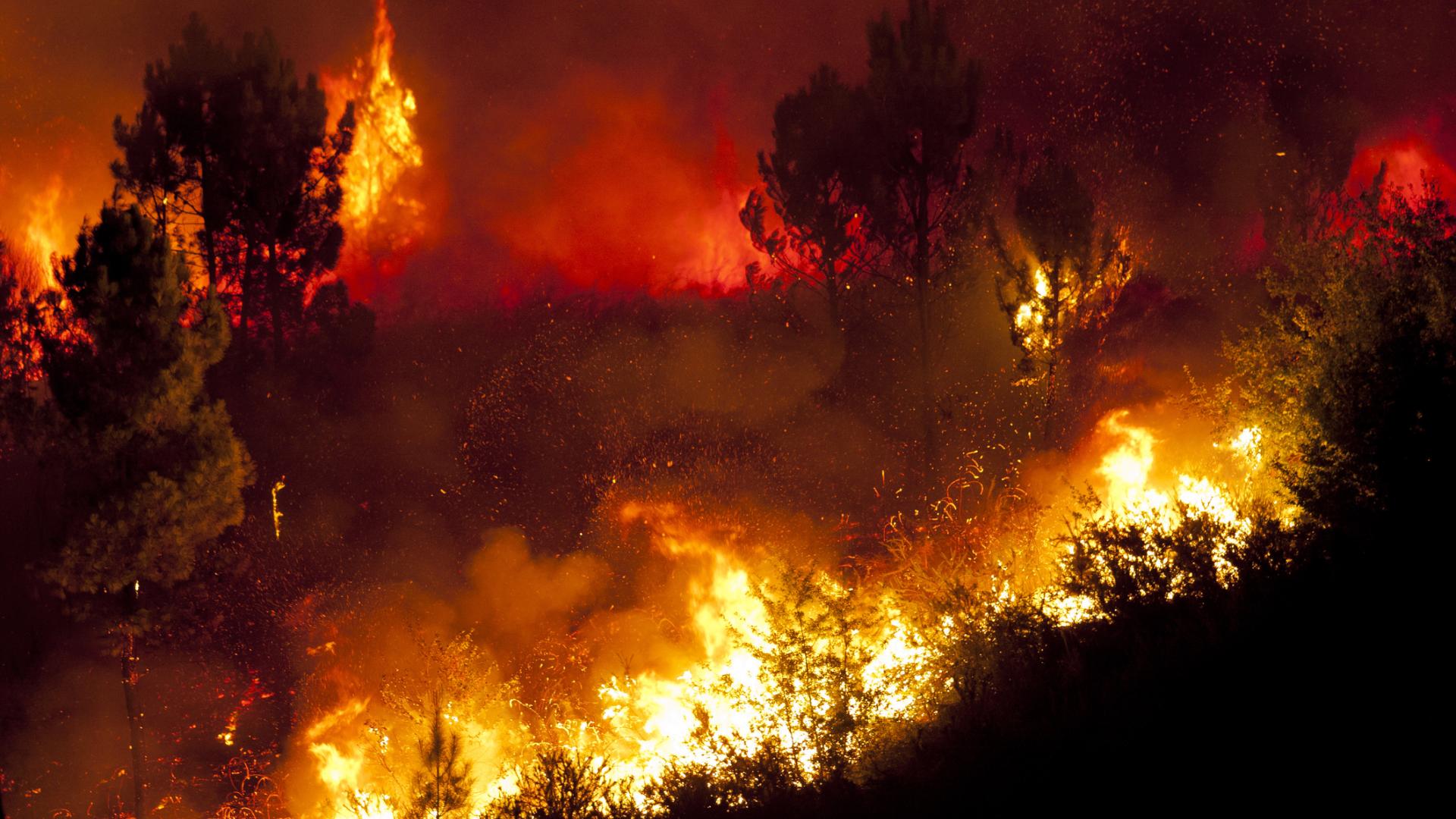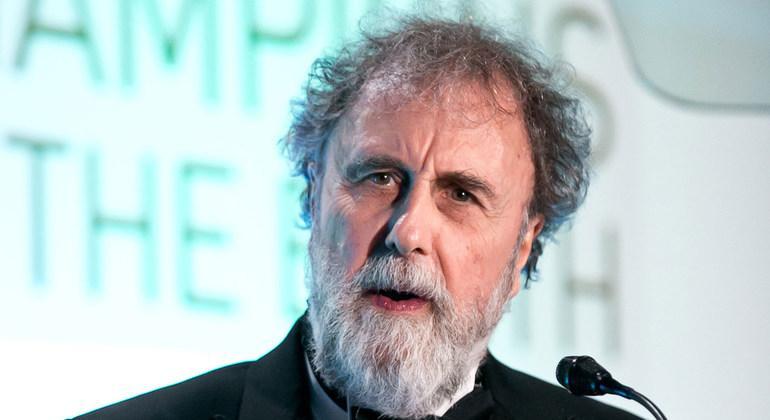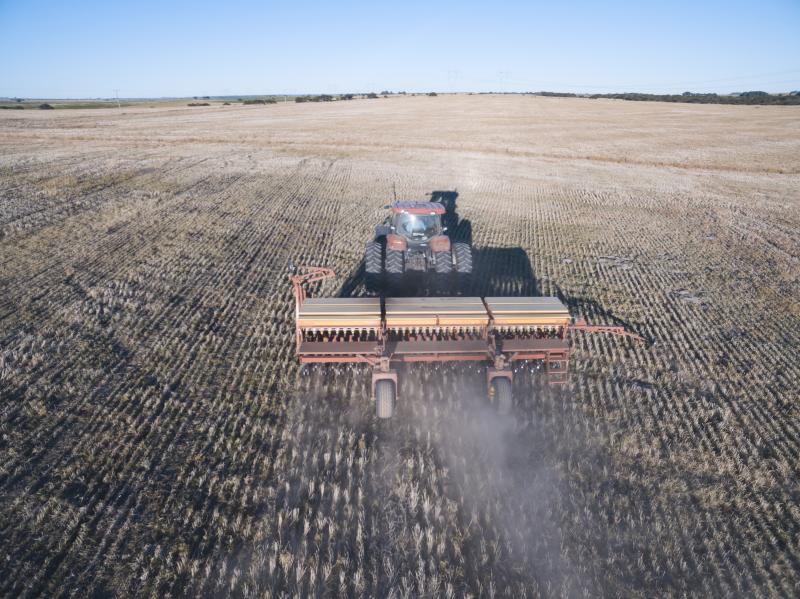Paul de Zylva20 Jul 2022
When he joined other world leaders in the UN Leaders Pledge for Nature at the UN Biodiversity Summit in 2020, then prime minister Boris Johnson declared:
“We must turn these words into action and use them to build momentum, to agree ambitious goals and binding targets. We must act now – right now. We cannot afford dither and delay, because biodiversity loss is happening today and it is happening at a frightening rate. Left unchecked, the consequences will be catastrophic for us all. Extinction is forever – so our action must be immediate.”
Such an emphatic acknowledgement by a UK prime minister of the crisis facing nature would be encouraging if decisive action followed. But will it? Leaders have made grand speeches and pledges before, and the crisis has continued.
Most nations agree on the need to act to protect and restore planet Earth, its nature, rich diversity of life (biodiversity) and the natural ecosystems and stable climate which we all depend on. But they've failed to follow through and turn their words into action.
This is the last decade our political and business leaders have to get things right for a change. In 2022 and 2023, they have the ultimate chance – at the global biodiversity and climate summits – to take the science and the warnings seriously, to get on track, to get it right. And to do it right now.
There has been no shortage of pledges, yet our leaders have squandered time and missed decades of opportunity.
Dither and delay – a worldwide failure of political will
Governments signed the legally binding Convention on Biological Diversity in 1992. The convention mirrors the global agreement to keep our climate safe by limiting temperature rises. In 2010, governments also set 20 targets so that by 2020 the world would be on track to protect and restore life-supporting nature, biodiversity and ecosystems by 2050.
But a lack of political will and failure to implement the actions meant that none of the 20 targets were reached by 2020 - six were “partially achieved” but the rest fell short. The decade to 2020 was wasted. And here we are again, with leaders saying the same things with even less time to get things right.
The consequence of the ongoing failure to reverse nature's decline was captured by the world’s leading scientists in their landmark 2019 Global Assessment. Sir Robert Watson, chair of the Intergovernmental Science-Policy Platform on Biodiversity and Ecosystem Services (IPBES) said: “The health of ecosystems on which we and all other species depend is deteriorating more rapidly than ever. We are eroding the very foundations of our economies, livelihoods, food security, health and quality of life worldwide.”
What’s happening in the UK?
The PM’s pledge for nature contrasts starkly with decades of inaction and mounting evidence of the declining state of nature, biodiversity and ecosystems in the UK.
Repeatedly, State of Nature reports have summed up the poor situation and lack of action that mean the UK is not in good enough condition – either to support and sustain wild species and habitats, or for people to be protected from climate extremes such as flooding and excess heat.
As recently as 2019, the third State of Nature report showed no let-up in the loss of nature in the UK:
- The average abundance of wild species has declined by 10% since 1970, based on data for 696 terrestrial and freshwater species.
- The rate of decline has been steeper in the 10 years since 2010.
- 15% of wild species are threatened with extinction from Great Britain, according to the IUCN’s Red List assessment of 8,431 species.
- 2% are known or considered likely to have become extinct.
These declines mirror those seen in mainland Europe and globally. After years of inaction, the UK government also reported it would meet only 5 of the 20 targets which it helped negotiate in 2010 to reverse nature’s decline by 2020 – described by the RSPB as "a lost decade for nature".
Deciding the fate of the planet – a critical decade
Yet our political and business leaders have all the evidence they need and the solutions at their fingertips. In the coming months, our leaders are negotiating how to make up for past failures when they meet at two vital events:
- The 27th Conference of the Parties (COP27) to the UN Framework Convention on Climate Change (UNFCCC), which sees the UK pass leadership of the negotiations to Egypt, following the Uk’s hosting of the Glasgow COP26 talks in November 2021.
- The 15th Conference of the Parties (COP15) to the UN Convention on Biological Diversity, which is being hosted by China – but held in Canada - in Autumn 2022.
Both summits have been delayed by the covid-19 pandemic bit it’s no exaggeration that getting the right deals at both COPs will set the course for the rest of this crucial decade and will decide the fate of our planet.
Our leaders, government and businesses have a choice:
Either to carry on giving grand speeches about the need to act while continuing business-as-usual activities that caused the problem in the first place.
Or back up their words with an ambitious, effective, fair, transformative and mandatory deal – the kind that scientists can verify – that does what is needed to sustain life on earth, save countless species and habitats and turn the tide on mass extinction.
If we are to live in a nature-rich world with a stable climate – the only world that is viable – the choice is clear.
Clear public support for action on nature’s decline
Sadly, the lack of political and business action is not unexpected. But it’s increasingly out of step with the public's support for action to protect and restore nature, biodiversity and ecosystems.
A survey of people in the UK and Europe found 95% agreed that we have a responsibility to look after nature and that doing so is an essential part of tackling climate change. And 93% agreed that human health and wellbeing depends on thriving nature and biodiversity.
In the UN’s 2020 survey of 1.5 million people in 195 countries "more environmental protection" was rated as the number one long-term priority for respondents ranking in people's top three priorities across all regions.
The vast majority of people (97%) value international cooperation in addressing global challenges. 52% of respondents say international cooperation is essential and 34% see it as very important.
Nature is in trouble - we can be the solution
As the IPBES Global Assessment shows, there is no mystery about why our natural world is in trouble.
Harmful human activity, especially in the past 50 years, means that many species and habitats face extinction at rates faster than normal. Consequently, the ability of the many diverse natural ecosystems that keep us supplied with clean and reliable air, water, food and materials is being eroded.
As UN Secretary General António Guterres has said:
Humanity is waging war on nature. This is senseless and suicidal.
"The consequences of our recklessness are already apparent in human suffering, towering economic losses and the accelerating erosion of life on Earth...
Making peace with nature is the defining task of the coming decades. We must seize the opportunity presented by the COVID-19 crisis to accelerate change.”
As with climate change, nature can only be saved by addressing the root causes of its decline and time is running out. The coming decade to 2030 is our last chance to get on track to co-existing with our planet. We can do this by improving governance, changing business practices, adjusting economies and adjusting patterns of consumption, land and resource use to ensure we live within, not beyond, the planet’s boundaries.
9 ways the new global deal on nature can deliver
If nature’s decline is to be stopped and then reversed by 2030, the new Global Biodiversity Framework due to be adopted at COP15 must be effective, ambitious, fair, transformative and mandatory. That requires:
Action across the whole of government Action to protect and restore biodiversity must be owned across entire governments, especially but not limited to agricultural, business, economic, energy, and transport ministries.
Proper implementation Any new global biodiversity agreement will fall at the first hurdle unless it can ensure that the goals it contains will be implemented by national governments by 2030. The world cannot afford any repetition of past failures to hit targets and to implement agreements. All talk without the right actions is worthless.
New standards for trade and business The trend for the UK and other economies to export their ecological footprints to the nature-rich regions of the Global South (Latin America, Asia, Africa, and Oceania) through international trade is responsible for much of the declining state of nature.
A new, credible framework for nature will have targets to reduce international pressure on ecosystems by establishing binding rules for corporations, including abiding by standards for biodiversity and human rights.
It's also essential to get the role of trade and trade deals right. Trade agreements must be in step with what is required for both climate and nature.
The founding principles of the World Trade Organisation recognise the need to protect biodiversity as part of the objectives for sustainable development. It’s also been argued that the intention of trade rules isn’t to position trade above or against environmental aims and biodiversity in particular.
Even so, the apparent structural supremacy of trade rules and laws over the imperatives of climate change is arguably even more stark for biodiversity, which appears to be less advanced in trade thinking than climate change considerations.
End misuse of money Governments and lenders must remove financial support and subsidies for nature-harming business and activities, such as fossil fuel exploration, unsustainable farming and fishing, and palm oil plantations.
There must be high standards for all financing of projects, activities and businesses, with due diligence, full disclosure, reporting and assurance.
Tackle root causes Address the drivers of biodiversity loss, starting with forms of economic activity that are based on intensive agriculture and the unsustainable consumption and disposal of natural resources.
Protect people’s rights Too often the rights of indigenous and tribal peoples and local communities are swept aside in the race to grab land and plunder resources.
The IPBES Global Assessment reported that “Areas of the world projected to experience significant negative effects from global changes in climate, biodiversity, ecosystem functions and nature’s contributions to people are also home to large concentrations of indigenous peoples and many of the world’s poorest communities.”
The new agreement must protect territories, biodiversity, ecosystems and the knowledge held by indigenous and local peoples though their historic and often ancestral relationship with their areas.
Proper protection for hotspots There must be full protection of the world’s most important areas for species and habitats. That doesn’t mean areas outside these protected zones can continue to be plundered, but that higher protection must be set and enforced.
A growing number of governments have committed to protection for at least 30% of the world’s most important biodiversity hotspots – that should be a minimum, not a ceiling.
Plan and report There must be transparent and streamlined national biodiversity strategies and reporting obligations, as well as a mandatory review process for all countries.
Governments need new ways to measure progress, because relying on GDP to measure success tends to result in measuring and valuing the very things that cause the problems in the first place.
Enforce agreements There must be a credible way to challenge nations if they fail. The new agreement needs proper compliance mechanisms with severe consequences and sanctions for countries that breach the terms of the agreement.
Nature protection needs transformative change
The world doesn’t need more deals that look good on paper but are ignored as normal business and politics resumes.
As the top scientists say in the IPBES Global Assessment, “Goals for conserving and sustainably using nature and achieving sustainability cannot be met by current trajectories, and goals for 2030 and beyond may only be achieved through transformative changes across economic, social, political and technological factors.”
Our leaders have the chance at the climate and nature talks to seize the day - and the decade. The interdependence of climate change and biodiversity loss is clear. China, the USA, the EU and the UK are pivotal by leading on the world stage – and also at home – to end the complacency and inertia that’s got us into this mess.






